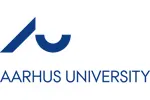

| The award | How you will study | Study duration | Course start | Domestic course fees | International course fees |
|---|---|---|---|---|---|
| MSc | Full-time | 4 semester | September, February | 0 | EUR 0 per year |
Have you thought about how rates for a new mortgage loan should be fixed - with an interest-rate ceiling or as interest-only loans? In fact, it was mathematics-economics graduates who developed the model used for fixing the cost of such loans. All major companies face complex problems, and many turn to a mathematics-economist to solve them.
Mathematics-economists are experts in designing optimisation strategies, something that requires great theoretical insight into both economics and mathematics. As a student of mathematics-economics, you have the option of specialising in a subject within a broad area, including one of the areas in which Aarhus University is particularly strong: mathematical finance, economics, and operations research.
BUILD YOUR OWN STUDY PROGRAMME
The MSc in Mathematics-Economics is taught at the Department of Mathematics and the Department of Economics and Business. Students specialise through course activities and projects and through a thesis. Students structure their own individual study programme in consultation with a lecturer. The programme is designed on the basis of each individual student's academic qualifications, interests, and subjects studied at BSc level. Read more about the different tracks over the page.
STUDENT LIFE
As a student on the programme, you are based at the Department of Mathematics and at the Department of Economics and Business Economics. You therefore get to benefit from the facilities of both departments.
The Department of Mathematics has its own canteen, computer rooms, library, and study areas shared by students. As a master's student, you will be given your own desk in an office shared with other master's students. The department also has a number of student organisations such as Euler's Friends, the Kalkulerbar or Friday bar, and the mathematics- economists association (the MØF) through which academic activities, study trips, and social functions are organised.
The Department of Economics and Business Economics has nearly six hundred study spaces, a large canteen, and state-of-the-art high-tech facilities to meet students' needs.
CAREERS
Job prospects for Mathematics-Economics graduates are extremely positive, and career opportunities are many. A large proportion of our graduates find work in the private sector. Banks and insurance companies are the major workplaces, with many graduates working as problem-solvers in consultancy and telecommunications companies. Planning departments in large industrial or manufacturing companies are also a relevant job market.
PROGRAMME STRUCTURE
The topics covered in the study programme depend on the track chosen by the student. There are three tracks on the programme: Economics, Mathematical Finance, and Operations Research.
Typical courses in Economics are:
Courses in Mathematical Finance are:
Courses in Operations Research are:
All EU/EEA/Swiss citizens are exempt from payment of tuition fees.
In general, admission to a Master’s degree programme requires successful completion of a relevant and recognised university degree equivalent to a Danish Bachelor’s degree in level and length (180 ECTS). All applications must also fulfil the English language requirements.
Find more information about the admission requirements, application procedure and deadlines at Aarhus University.
In addition, you must meet the specific requirements for the Mathematics-Economics programme, which can be found on the Mathematics-Economics study programme page.
Below are some suggested courses at other providers that you may also be interested in:
Innovation & Marketing Management MSc, PG Dip
Strathclyde Business School, University of Strathclyde
Find out moreIf you do not meet the entry requirements for this course then consider one of these postgraduate preparation courses from another institution:
Graduate Diploma of Engineering (Industrial Automation)
Engineering Institute of Technology
Find out moreGraduate Diploma in Law/Common Professional Examination GDL/CPE
Northumbria University Newcastle
Find out moreGraduate Diploma in Interpreting, Translation and Transcultural Communication
The University of Adelaide
Find out moreThere are 56 other courses listed from Aarhus University. A selection of these are displayed below:
Find out more about studying in Denmark